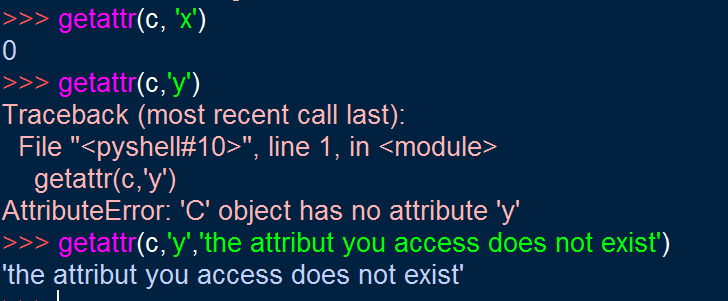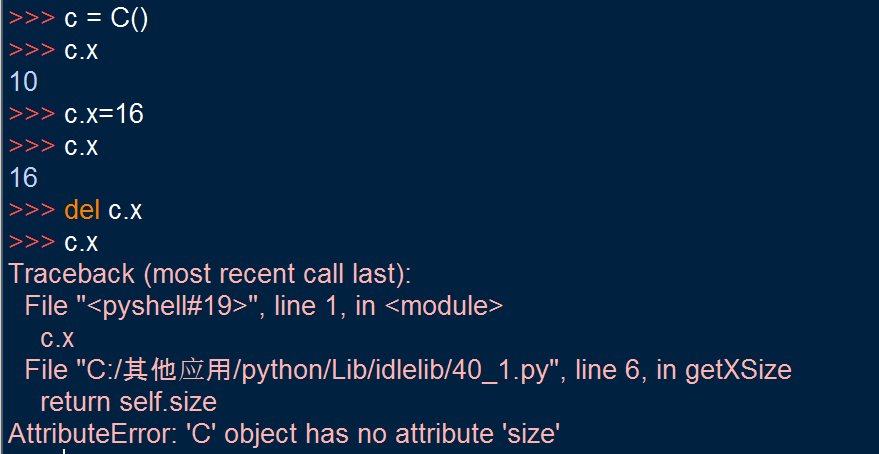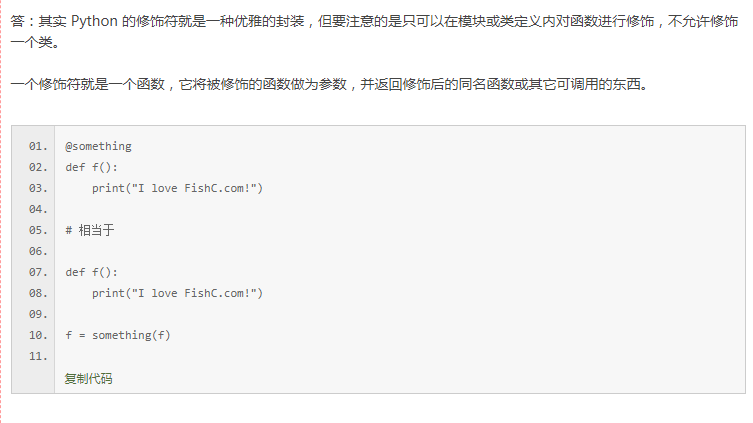00-- issubclass(class,classinfo)
to check if the class are the child of the Class in classinfo( can be a list )
01-- isinstance (object, classinfo)
to check if the object in the classinfo (it can be a list with all the related class object name), return Truth of False
02-- hasattr(object, name)
e.g.

Note: name need to be check with ' '
003 -- getattr(oject, name [default])
return the value of the accessed attribute. And you also can define the message for return if the attribute can't be found.

004 -- setattr(object, name, value)
to set the value of the attribute for the object.
a--if the attribute have a value, then update to the newly value
b-- if the attribute doesn't exist in the object, then new a new attribute for the object and set the value.

005 -- delattr(object, name)
delect the related attribute in the object
006 -- property(fget=None,fset=None,fdel=None,doc=None)
pass the functions of get,set,del to property function, and it will call related function with related parameter.
e.g.
class C: def __init__(self, size=10): self.size = size def getXSize(self): return self.size def setXSize(self, value): self.size = value def delXSize(self): del self.size x = property(getXSize,setXSize,delXSize)

007 -- function modifier
Normally, if we would like to count the running time of a function, we will write the code as below:
import time def timeslong(func): start = time.clock() print("It's time starting ! ") func() print("It's time ending ! ") end = time.clock() return "It's used : %s ." % (end - start)
Then we need to write the detail codes for func().
But with function modifier:
import time def timeslong(func): def call(): start = time.clock() print("It's time starting ! ") func() print("It's time ending ! ") end = time.clock() return "It's used : %s ." % (end - start) return call @timeslong def f(): y = 0 for i in range(10): y = y + i + 1 print(y) return y print(f())
Or we can use it in a class
class timeslong(object): def __init__(self,func): self.f = func def __call__(self): start = time.clock() print("It's time starting ! ") self.f() print("It's time ending ! ") end = time.clock() return "It's used : %s ." % (end - start) @timeslong def f(): y = 0 for i in range(10): y = y + i + 1 print(y) return y print(f())
And we also can use @staticmethod, @classmethod, @property to update the properties or functions for related class and also can be used with class itself directly (no need to type with a instance)
e.g
set classmethod
class Hello: def __init__(self): pass @classmethod def print_hello(cls): print("Hello")

the class itself can call the functions without new a instance.
set staticmethod
class Hello: def __init__(self): pass @staticmethod def print_hello(): print("Hello")

PS: please note the @calssmethod and @staticmethod difference.
008-- @ in python
@ is a function.
